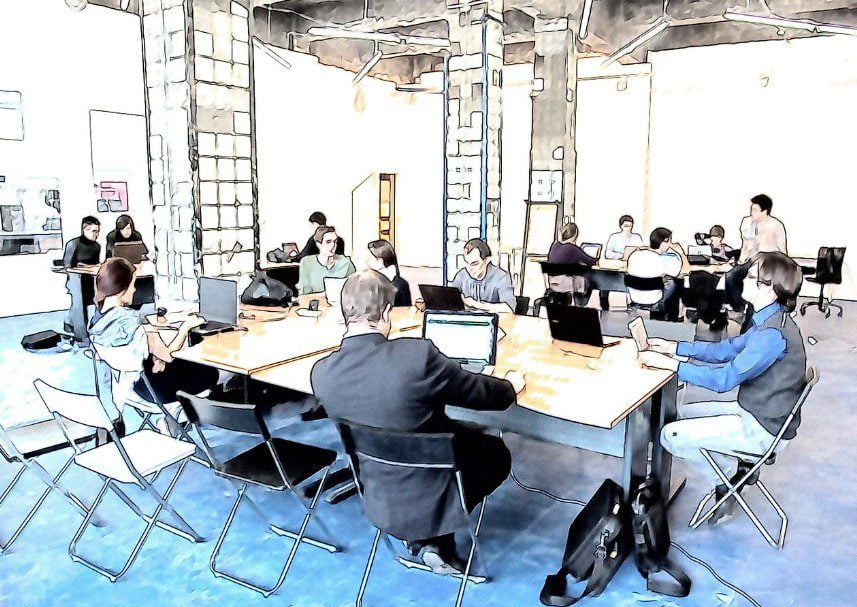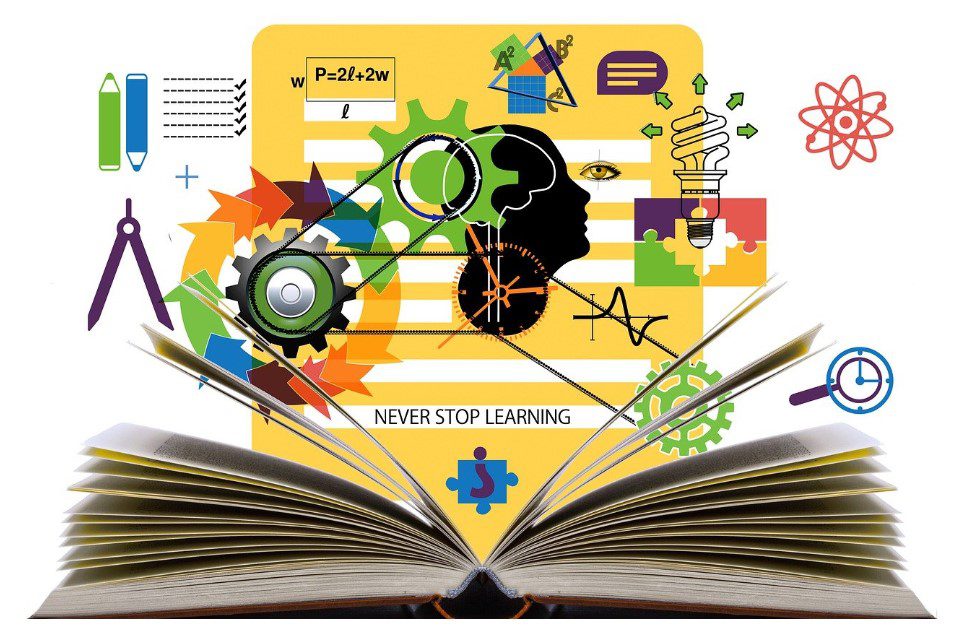Higher education has long been considered a stepping stone towards a promising career. It was a pathway to acquiring knowledge, skills and jobs in the 20th century. In the 21st century, however, the intersection between education and jobs is undergoing a metamorphosis.
Most of the transformation is down to advances in technology and changing workplace environments.
Technology is evolving at an unprecedented rate, and is disrupting industries and workplaces that are still dependent on the factory model of education.
To put it simply, the relevance of traditional and static higher education and degrees in preparing individuals for the dynamic job market is increasingly being questioned.
The Relevance of Education Today Vary Across the Board

The relevance of education to jobs in the 21st century varies across different fields. In certain professions, a higher education degree serves as a direct and indispensable prerequisite. This is because these jobs require specialized knowledge and credentials.
Professions like medicine, law, engineering, and academia necessitate a specific level of education. This ensures graduates have acquired the foundational understanding and skills essential for success in these fields.
- In the medical field, for instance, doctors undergo extensive education and training to comprehend complex medical concepts and practice medicine safely. The intricate nature of healthcare demands a thorough educational background to ensure the well-being of patients and the ability to adapt to advancements in medical science.
- Similarly, lawyers must complete legal education to grasp the intricacies of the law and advocate effectively on behalf of their clients. Legal education serves as the bedrock for maintaining justice, upholding the rule of law, and ensuring fair representation in legal matters.
- Engineers, pivotal in driving technological progress, necessitate specialized knowledge to design and create innovative solutions. Their education equips them with the skills required to address complex engineering challenges and contribute to advancements in various industries.
- Academia, the domain of research and scholarship, requires advanced degrees for individuals to make meaningful contributions to their fields. Pursuing higher education in academia fosters the development of critical thinking, research skills, and analytical abilities. These cultivate an environment of innovation and knowledge creation.
While the importance of education is evident in these specialized fields,the 21st-century professional landscape demands a balanced approach that combines specialized education with a focus on practical skills.
What Employers Want in the 21st Century
In some evolving industries, especially technology based, the traditional educational models may encounter challenges in keeping pace with the continuous advancements.
The concern frequently voiced by employers and business leaders is the perceived disparity between the skills and knowledge acquired by students during their college education. This is in contrast to the practical competencies they need to transition into the workforce.
Employers prioritize hands-on experience, certifications, and a demonstrated ability to adapt to evolving technologies over a specific degree.
The emergence of new jobs and the dynamic nature of technology mean that employers often seek a combination of formal education and practical, up-to-date skills.
Professionals in these fields are often required to engage in continuous learning to stay abreast of the latest developments. The emphasis is usually on practical application of knowledge.
The evolving workplaces also emphasizes the importance of soft skills such as critical thinking, problem-solving, communication, and adaptability. These skills, although not always explicitly taught in formal education, are increasingly valued by employers across various industries.
What Education Offers in Contrast to What Employers Want!

Yes, education provision and jobs available in the 21st century offer insightful contradictions.
Here are some examples of what higher education offer in contrast to what employers actually require:
1. Theory Vs Practical Knowledge
Higher Education: Higher education programs often emphasize theoretical concepts and academic knowledge.
Practical Skills: However, employers may prioritize candidates who can apply this knowledge in real-world scenarios and demonstrate practical skills.
2. Software Development
Higher Education: A computer science degree provides a solid foundation in algorithms and programming languages.
Practical Skills: Employers may prioritize candidates with hands-on experience in specific frameworks or languages, demonstrated through personal projects or relevant work experience.
3. Cybersecurity
Hgher Education: A degree in cybersecurity can offer theoretical knowledge of security protocols.
Practical Skills: Employers often seek professionals with certifications like Certified Information Systems Security Professional (CISSP) and practical experience in identifying and mitigating security threats.
4. Data Science
Higher Education: A degree in data science imparts statistical and analytical skills.
Practical Skills: Employers may value practical experience in using data science tools and languages (e.g., Python, R) and the ability to apply analytical skills to solve real-world problems.
5. Digital Marketing
Higher Education: Marketing degrees provide foundational knowledge of marketing principles.
Practical Skills: Employers may prioritize candidates with hands-on experience in using digital marketing tools, running campaigns, and analyzing data to make informed marketing decisions.
6. Project Management
Higher Education: Project management courses provide theoretical frameworks and methodologies.
Practical Skills: Employers often look for project managers with certifications (e.g., PMP) and a track record of successfully managing projects, emphasizing the ability to adapt to changing project requirements.
7. Artificial Intelligence (AI)
Higher Education: Degrees in AI or machine learning offer theoretical understanding of algorithms and models.
Practical Skills: Employers may prioritize candidates with experience in implementing AI models, contributing to open-source projects, and staying updated with the latest advancements in the field.
8. Soft Skills in Management Roles
Hgher Education: Business degrees may cover management principles.
Prctical Skills: Employers increasingly value soft skills such as leadership, effective communication, and adaptability in managers, which are not always explicitly taught but are crucial for successful leadership.
9. Career Paths
Higher Education: Fixed Career Paths.
Practical Skills: Adaptability and Multidisciplinary Skills. The evolving job market may require employees to take on roles that extend beyond their initial career paths. Employers seek individuals who can adapt to changing roles and demonstrate a range of skills across different disciplines.
It is important to note that the specific requirements can vary by industry, job role, and company culture. Employability and jobs in the 21st century often depend on a combination of both higher education learning and practical skills acquired through experience.
What is the Way Forward for Learners in the 21st Century?

Employers now seek individuals with specialized skills that align with the demands of modern industries. The ability to adapt to technological advancements, data analysis, and proficiency in digital tools are becoming indispensable.
1. Embrace Technology
Technological innovations are disrupting traditional industry models, in favor of automation. They are also introducing new ways of doing business.
Industries such as manufacturing, healthcare, finance, and communication are thus experiencing substantial transformations. Automation, artificial intelligence, data analytics, and the Internet of Things (IoT) are just a few examples of technological advancements that are reshaping the operational landscape of businesses.
The dynamism of technological progress requires individuals in the workforce to possess the ability to adapt quickly to changing circumstances. As industries adopt new technologies, the demand for a workforce that can harness and leverage these advancements becomes increasingly pronounced.
This necessitates a workforce that is not only well-versed in foundational skills but also agile and capable of continuous learning to stay abreast of emerging technologies.
In response to all these, higher education institutions may need to recalibrate their curricula, integrating more practical, hands-on experiences that mirror real-world technological challenges. Emphasis should be placed on cultivating critical thinking, problem-solving, and adaptability alongside subject-specific knowledge.
2. Emphasis on Practical Experience
In the 21st century, employers value hands-on experience as much as, if not more than, academic qualifications. Internships, co-op programs, and practical projects have become crucial in bridging the gap between theoretical knowledge and real-world application.
For modern education to remain relevant, we must incorporate practical learning experiences. This shift not only enhances the employability of graduates but also ensures they are well-equipped to navigate the dynamics of their chosen fields.
3. Embrace Lifelong Learning
The notion of education as a one-time endeavor is becoming obsolete. The concept of lifelong learning is gaining traction, because it emphasizes the need for individuals to continuously update their skills throughout their careers.
This challenges the traditional model of education as a one-time preparation for a career.
In a rapidly changing job market, individuals must embrace lifelong learning to stay abreast of industry trends and technological advancements. Continuous education, whether through online courses, workshops, or self-directed learning, has become a cornerstone for career success, going forward.
4. Use Online Learning Platforms
Online learning platforms offer a flexible and accessible way for individuals to acquire new skills and knowledge. The convenience of learning at one’s own pace, coupled with the ability to choose from a vast array of courses, makes online learning a valuable supplement to traditional higher education.
5. Try Alternative Paths
Alternative pathways, such as vocational training, online courses, and certifications, are gaining importance. Some employers are placing more value on demonstrated skills and experience than on traditional degrees.
6. Integrate Soft Skills
Modern education should place a stronger emphasis on fostering soft skills alongside technical competencies. Group projects, communication workshops, and leadership development programs can contribute to a more well-rounded and employable graduate.
While technical skills are essential, employers are increasingly recognizing the significance of soft skills in the workplace.
Communication, critical thinking, and adaptability are becoming defining factors for career progression.
The Last Word
Does higher education still mold people today into job-ready professionals?
In evaluating the relevance of higher education in the 21st century jobs markets, it becomes evident that a paradigm shift is underway. While traditional education provides a foundational knowledge base, it often falls short in addressing the rapidly changing needs of the modern workplace.
The changing nature of work and the skills required in the modern workforce suggest that a combination of formal education, practical experience, and ongoing learning may be the most effective preparation for a successful career.





Leave a Reply